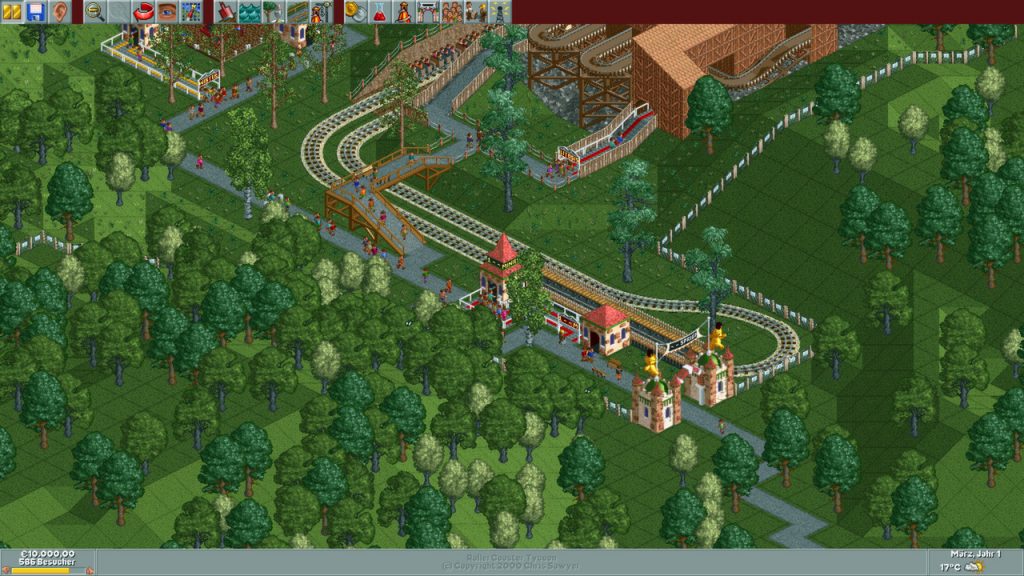Simulation games recreate real-world activities and scenarios, putting the player in control of them. In addition to an obvious example like Flight Simulator (Microsoft, 2020), tycoon games like Roller Coaster Tycoon (Atari, 1999) are good examples of simulation games.

In Roller Coaster Tycoon, the player has to design and coordinate a theme park in a precise way with varying goals like maximizing profit or guest happines and making the most efficient use of a limited amount of resources or land. This makes the game much like an optimization problem, fostering the skills in the following section.
Skills Linked to Simulation Games
- Creativity
- Complex Problem Solving
- Judgment & Decision-making
- Organizations
- Resource Management
Creativity is greatly fostered in simulation, especially tycoon, games as the player takes the control to design in addition to managing a simulated environment. For example, the player is free to choose which amusement rides their park will include and where, and even design roller coaster rides themselves! Applications of creativity like these also serve to the strategy the player adopts.
One of the skills that simulation games require and develop the most is complex problem solving because of the complex nature in real-life of the events and environments that are recreated. For example, when designing a roller coaster ride, the player must take into account the cost of building, ease of access, healthiness, and enjoyableness of the ride, in addition to managing the other parts of the park simultaneously.
Finally, planning and organization skills are required and developed. This is because players need to always develop and adopt strategies to achieve objectives (thus also fostering the skill goal setting).
One reply on “Simulation”
How do emerging technologies, such as virtual reality, augmented reality, or machine learning, intersect with simulation techniques, and what novel possibilities do these integrations unlock for researchers and practitioners in various domains?